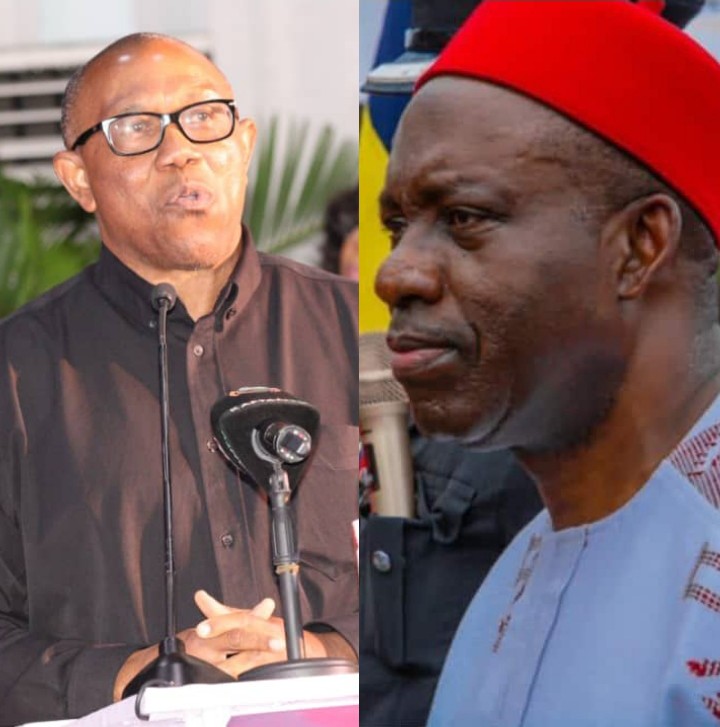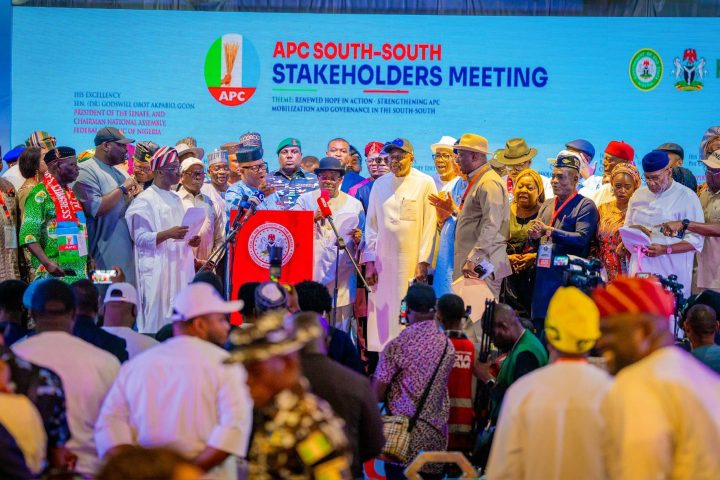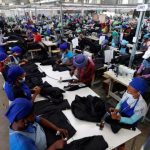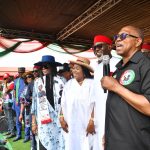Sometimes, early in 2002, if I could still recall the month, I think it was on February. I was in Enugu for about nine days. There was this Professor Joseph Stiglitz, an Economist of global repute, invited to Enugu to talk to the South East political leaders at the Nike Lake Resort Hotel, Enugu. An itinerant knowledge seeker in me decided it was a gathering worth attending. Stiglitz, I understood then, was a World Bank Economist who sometimes disagreed with the institution, and was an insider critic of the Bill Clinton’s government where he served as a Chief Economic adviser. I gathered that his disposition led to his exit from government. He was described as a man with his own mind. I figured out that he must have been invited by the Nigerian woman who was also from the world Bank, that is the present Director General of the World Trade Organisation, Dr. Ngozi Okonjo Iweala. I noticed a handsome, dark-skinned young man at some point running after her as she moved about outside the hotel hall. He was later to be introduced as Professor Charles Soludo. He was said to be running what was described then as African institute of Applied Economics at the University of Nigeria, Nsukka, Enugu Campus (UNEC).
What caught my attention about him were these: his name, which I translated to mean “follow peace,” based on what I considered my understanding of Igbo language. When he was to introduce Professor Stiglitz, he made a remark that Stiglitz was going to pontificate. I remember my early days in the Catholic Church as a young adult. To pontificate was somehow clear. And, Stiglitz did indeed pontificate. He was unapologetic in his declarations to the extent that one of the state governors in attendance remarked that he was talking directly about the situation in the South East. But Stiglitz, at some point was punctuated, and looked ruffled, when he saw a massive Pius Anyim, the Senate President, walking in late to the event, with his retinue of armed security personnel. I believe the heart of Stiglitz must have raced fast for a few seconds as he paused, only for him to be told that the man that walked in was Nigeria’s Senate President. When it was Anyim’s turn to speak, one statement that caught my attention was that he said, “as politicians, our ways are not always straight.” I thought I was the only one that caught that statement until I saw it published in a newspaper report.
My takeaways then from the event were many. Some of them were as follows: the name Soludo became stuck in my mind. He won my admiration. He may not remember we met thereafter in Abuja at Transcorp Hilton where he gave me his phone number. But, I believe, with his subsequent appointment, first as adviser and later as CBN governor, he may have discarded that phone number, like many are wont to do in government. Secondly, I became a fan of Stiglitz: I had to get one of his books, titled “Globalization and its Discontents.” I enjoyed listening to his interviews and his views. Of course, the giant woman from the World Bank, at least we have now known, later became a Minister in Obasanjo’s government the following year. She turned out to be one of the few I held to high esteem for the ideas she introduced into government. Apart from debt forgiveness, I gathered that she introduced some standards into the ways ministers presented their hardcopies of reports. She was said to have opened a website detailing government’s revenues and expenditures. I have read and heard about her fight against corruption in government. No surprises then her records spoke for her in her bid for the WTO’s top job. Her charity began at home.
It was therefore a bit surprising and somehow appalling to read the long, convoluted and verbose piece recently written by that same Professor Soludo I esteemed so well. In that write-up, he bent down so low, beneath his status as an academic, an Economist and a sitting governor. He sounded like he reads the Bible, but he didn’t seem to have read what Ecclesiastes 7: 21 admonished. He would have done great had he stopped at the Channels TV interview, without any attempt to double down. That “respected Igbo elder statesman” he referred to in the third paragraph of his long “epistle” did much damage to his reputation by advising him “to personally author a response, just for the records” in response to what the “elder statesman” called “Peter Obi and his social media mob” that should be ignored, as he was so sure without any empirical evidence that “everyone knows that he is going nowhere, but they are looking for who to blame.” What a sort of Ahithophel counsel!!
Professor Soludo was first an intellectual Before becoming a politician. I remain an idealist. Could this be one of the many reasons I won’t become a politician, since many professionals drop their professional toga once in politics and settle for the expedient? Professor Soludo would have been commended for tactfully avoiding being drawn into the Peter Obi issue. But, according to him (and this was a poor judgement on his part), he chose to “give the social media mob something substantive to rant upon and rain their abuses for weeks.” If he knew pigs and he thought he was wearing white, why would he even bother to engage in wrestling with the supposed pig? He must have some hidden things in common with the social media mob, as he latter wrote about monopoly of violence.
He attempted to be analytically considerate for Obi’s presidential ambition by dropping the hint in the seventh paragraph that, translating anger and social media agitation into political outcomes requires humongous work. But he probably forgot to advise further, according to one other presidential aspirant that once said in one of his parables that “anger is a shorter of life,” whatever that meant.
The Professor, in paragraph nine, disclosed his magnanimity and tolerance, how he offered Obi a suggestion to return to the All Progressive Grand Alliance (APGA) and contest for president as he thought to use APGA to organise the Igbo before stepping out to bargain power with other organised coalitions. His reference to the Labour Party as “a party with literally zero structure” would have been pardonable if said, when others in other political parties made it a chorus in the first one or two months after the party primaries. For Professor Soludo to have said that recently meant that he is suddenly out of touch with reality. I fear that he is sorrounded by paranoid aides who feed him with misinformation and subjective statements. Even the two old guards contesting for president now and their confidants are having nightmares in their closets because of the burgeoning followership of Obi’s candidacy and the spontaneity of interest generated among voters that were earlier apathetic to voting, but who have not only registered, but have chosen to settle for Obi. They no longer talk of social media followership as they see crowds gathering wherever Obi went. My business here is not to delve into how intimate the friendship between Charles Soludo and Peter Obi was or is. My concern is to situate issues realistically.
PBA POLL: 2023 Campaigns: Time To Exorcise The Evils Of Political Mudslinging
Professor Soludo, by his statement in paragraph 10, that he has no faith that Obi, even as APGA candidate, will win, was a betrayal of his insincerity and limited understanding of possibility thinking. He probably overrated his own analytical skills to the extent that, if it wasn’t his own thought, then that reality should not be contemplated. He could not envisage or envision a successful moonshot attempt by himself or Obi. He couldn’t come to terms with an Obi that suddenly became the darling of Nigerians across ethnic and religious divides. That was a glaring shortcoming on the part of the Professor. I am therefore inclined to believing that he is limited in his ambition for what to do as a state governor.
I am not capable of disputing Governor Soludo’s claim in paragraph 11 as he thinks APGA is presently the third largest party. He probably selectively chose to believe that those following Labour Party because of Peter Obi are inconsequential. His understanding of political structure also remains rigid, on the number of governors, senators and the like that a party presently has. He should have taken some time to read about the sudden emergence of Emmanuel Macron in France. His fixated decision to play down on Labour Party’s followership in the past couple of months sounds more like self-delusion. Here is one big surprise about Governor Soludo’s write-up, and one of the glaring shortcomings of those given to writing term papers and dissertations. They could sometimes write everything about nothing. The busy governor wrote and wrote, I believe he was enjoying his own act of “pontificating,” only to get to paragraph 12 before beginning to address the substance of his topic or issue he wanted to write about. That made his write-up sort of boring and uninspiring. If you give an essay written by an academic to a seasoned journalist to read, review and assess, he will probably disqualify the essay on many grounds. First is the long and winding rigmaroles before the substance. The journalist connects better with a wider audience while the academic sees his work as that of the deep calling into the deep, meaning he is satisfied communicating with just a select few and his message could remain encrypted, stowed away from those who should get it. Journalists, on the other hand, especially who are good writers, will introduce the kernel of their narratives in the first or second paragraph. Who has time to be held in suspense? A long article that starts by first dancing around the main issue will be discarded by an editor. And many articles sent to the press people from many from the academic community end up in the thrash bin.
For the undiscerning, Governor Soludo’s opinionated expressions could easily be confused for facts. In this reference to a Bishop, he began the discredit, making invidious comparisons in referring to Ngige roads versus Obi roads. In paragraph 13, he continued his act of pontificating, stressing that “governments exist to save lives not to save money.” He therefore must have been in the camp of some governors that stampeded President Goodluck Ebele Jonathan to release savings from Nigeria’s excess crude account for immediate spending. But Nigerians are yet to see the positive differences those agitating governors made to their states in terms of developments during their tenures. But it is surprising that the same Professor that was grandstanding about saving or not saving money could turn round to make self-contradictory and self-indicting claims of how he built foreign reserves from $ billion to $63 billion. He was therefore guilty of what he tried to accuse Obi of, namely: saving instead of spending. He even borrowed the expression from Peter Obi’s usual statement, “go and verify.”
In his paragraph 14, Soludo made a point of sitting on privileged information as governor. It is for this reason that those in glass houses should avoid throwing stones. One of the stones he threw, which will soon boomerang, was his opinion in paragraph 16, wherein he wrote that “Peter Obi knows that he can’t and won’t win.” When did a professor abandon professing for prophesying? He went further in paragraph 17 to even elaborate that his “head and facts on the ground” led him to know that its “probability is next to zero.” This is a reminder of Darrel Huff in his book on “How to lie with statistics.” According to one of the chapters in the book, what Soludo did here was to “statisticulate.” He exposed himself even worse by adding that,
“indeed, there is no credible pathway for him (Obi) near the first two positions, and if care is not taken, he won’t even near the third position.” Haba Prof!! Where are all those detailed knowledge about modelling, SWOT analysis, correlations and regressions? Looks like primordial sentiments and politics have temporarily overshadowed and subsumed them.
In paragraph 19, he seemed to have entirely jettisoned professorial skills and chose to venture into the dangerous territory of dwelling on the past rather than looking at today’s reality. His reference to 2019 votes when voter apathy prevailed and ignoring the tectonic shifts and increased interest of more voters, especially the youths, this time, portrays his deliberate bias. How is this different from someone who was still referring to Western Germany in 2015, a country that ceased to exist three decades earlier.
Professor Soludo was probably not aware of the underage voters in Kano that partly contributed historically to it’s status as the northern political and electoral wildcard. His question as to
“what is our Plan B when Peter Obi loses in February 2023?” did not portray pragmatism, but some hidden and inexplicable motives, especially in the context of prevailing situation. He even added bile to it by his additional statement, that “yes, you pray that he wins, but what if he fails as he is certain to?”
One laughable bomb Soludo dropped in paragraph 20 was where he repeatedly played down the power of social media to mobilise people. That means he is still an analog professor in a digital age. As a immigrant (to borrow a colleague’s expression recently), he should come and learn from the digital natives. He betrayed his little understanding of the power of the social media to mobilise people for or against a cause. In paragraph 21, he insinuated that Obi has paid social media analysts. No doubt there could be some paid and for some good reasons, but he ignored or rather could not contemplate or comprehend the reality of hundreds of volunteers, contributing their resources and working pro bono in Obi’s camp.
In the second to the last paragraph, Professor Soludo took extra steps to turn “a rotten situation to a bad one.” He was raw and unstatesmanly in his characterisation of those following the Labour Party’s presidential candidate. “To conclude,” although he didn’t end there, he wrote, “let me once again wish my brother Peter Obi good luck. He should have fun and enjoy the fleeting frenzy of the moment. But he must moderate the desperation as exhibited by his social media mob. There is a limit to propaganda. A mob action often reflects the character of its leader. No one has the monopoly of social media violence, and no one should play God.” This was exactly the point where the gown met the town, one at which the real street Soludo, as opposed to the refined one from the ivory towers, unraveled and was demystified.
Soludo’s decision to write that his first epistle was wrongheaded. He was misguided by the so-called elder statesman that advised him to write the gibberish that was unbecoming of a professor. He lost shine rather than gain plaudits for his ill-advised epistle. It’s sometimes better to be silent and be thought wise. His wrong assumptions about Obi, his followers and the social media mob characterisation are a reflection of the six blind men that went to feel an elephant, each one concluding that the part of elephant he felt was all the description of the whole elephant. Governor Soludo still has a lot to.learn about Social Intelligence. It takes people farther than academic intelligence.
Dr. Olukayode Oyeleye is a policy analyst.
















Follow Us